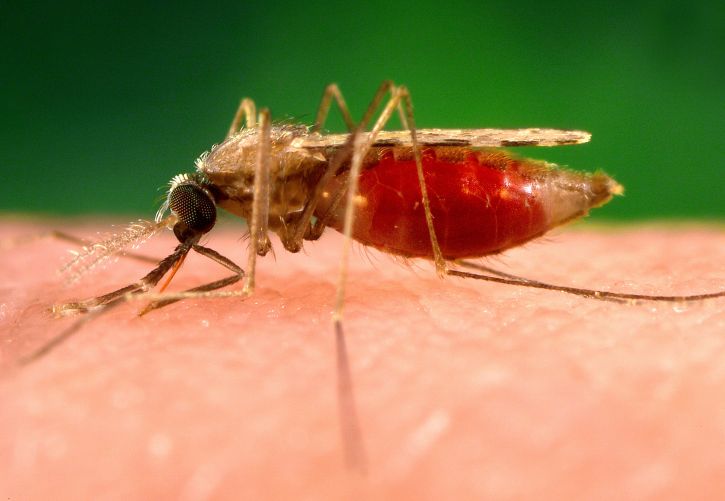Genetically modified mosquito could eradicate malaria
A malaria-free mosquito has been created by scientists using a genetic technology that causes the disease-free trait to be inherited by virtually all its offspring – raising the possibility of eradicating malaria within a single breeding season.
 Malaria is transmitted most commonly by an infected female Anopheles mosquito - the mosquito bite introduces the malaria parasites from the mosquito's saliva into a person's blood
Malaria is transmitted most commonly by an infected female Anopheles mosquito - the mosquito bite introduces the malaria parasites from the mosquito's saliva into a person's blood
According to a study, the genetically-engineered mosquito is incapable of transmitting malaria to humans and can pass on its disease immunity to 99.5 per cent of its progeny. This mosquito carries extra genes for antibodies that block the development of the malaria parasite within the insect and so prevent the disease from being transmitted to people when mosquitoes feed on human blood.
 Larva, about 8 mm long, of the Anopheles mosquito
Larva, about 8 mm long, of the Anopheles mosquito
Achieving such a result would lift a great weight of human suffering. Globally, malaria - a mosquito-borne infectious disease - kills up to a million people each year, mostly children. Between 300 million and 500 million cases of malaria occur annually and an estimated 40 per cent of the world’s population live in malaria areas.
The study suggests that it may soon be possible to eradicate malaria from entire regions of the world by releasing genetically modified mosquitoes that are able to pass on their malaria “immunity” to the rest of the breeding population of mosquitoes. This is because almost all the offspring born of a modified mosquito mating with its wild counterpart would have the ability to pass on the extra genes that prevent the malaria parasite from developing.
(All images - credit: Wikimedia Commons under Creative Commons licence)






